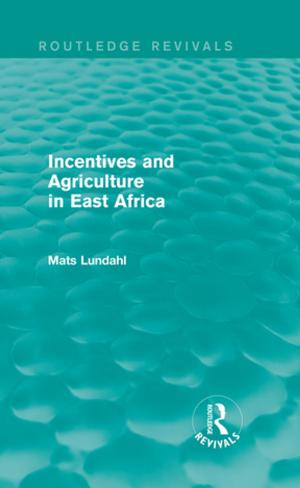Regional Cooperation in the South Caucasus
Good Neighbours or Distant Relatives?
Nonfiction, Social & Cultural Studies, Political Science| Author: | Tracey German | ISBN: | 9781317069126 |
| Publisher: | Taylor and Francis | Publication: | April 8, 2016 |
| Imprint: | Routledge | Language: | English |
| Author: | Tracey German |
| ISBN: | 9781317069126 |
| Publisher: | Taylor and Francis |
| Publication: | April 8, 2016 |
| Imprint: | Routledge |
| Language: | English |
The South Caucasus region, comprising the former Soviet states of Armenia, Azerbaijan and Georgia occupies a key strategic location, squeezed between the Black and Caspian Seas, Iran, Russia and Turkey. Since the disintegration of the Soviet Union in 1991, the region has become an arena of geopolitical confrontation with regional powers such as Russia, Turkey and Iran vying for influence in the face of growing Western involvement. The Russian military intervention in Georgia in 2008 not only raised questions about Moscow's intentions towards its 'Near Abroad' and the future direction of its foreign policy, it also demonstrated that ostensibly local separatist disputes have serious ramifications for regional relations and the wider international community. In this book, German explores the extent of regional cooperation in the South Caucasus, analyses the reasons for the relative lack of regional cooperation and assesses the potential for deeper cooperation in the future.
The South Caucasus region, comprising the former Soviet states of Armenia, Azerbaijan and Georgia occupies a key strategic location, squeezed between the Black and Caspian Seas, Iran, Russia and Turkey. Since the disintegration of the Soviet Union in 1991, the region has become an arena of geopolitical confrontation with regional powers such as Russia, Turkey and Iran vying for influence in the face of growing Western involvement. The Russian military intervention in Georgia in 2008 not only raised questions about Moscow's intentions towards its 'Near Abroad' and the future direction of its foreign policy, it also demonstrated that ostensibly local separatist disputes have serious ramifications for regional relations and the wider international community. In this book, German explores the extent of regional cooperation in the South Caucasus, analyses the reasons for the relative lack of regional cooperation and assesses the potential for deeper cooperation in the future.















